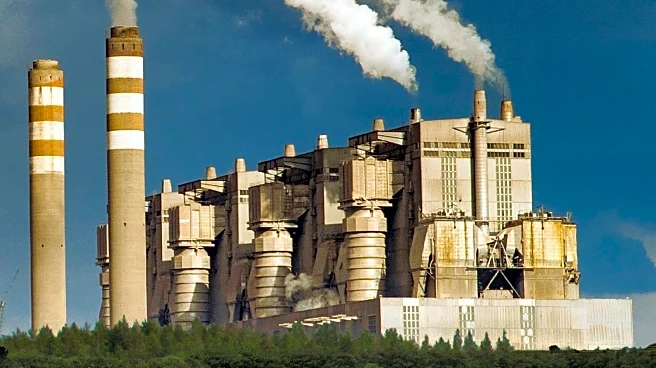What's Happening?
As utility costs continue to rise, a recent survey by CNET reveals that nearly 80% of adults are stressed about home energy expenses. In response, CNET has compiled a list of expert-approved strategies to help consumers save money on their utility bills without sacrificing comfort. These strategies include conducting an electricity audit, adjusting thermostats, lowering water heater temperatures, and unplugging unused appliances. The article emphasizes that even small changes, such as using energy-efficient appliances and taking advantage of off-peak electricity rates, can lead to significant savings. Additionally, the Department of Energy provides resources for further energy-saving tips.
Why It's Important?
The rising cost of utilities is a significant concern for many households, impacting their financial stability. By implementing the suggested energy-saving measures, consumers can reduce their monthly expenses, thereby alleviating some of the financial stress associated with high utility bills. This is particularly important as energy prices fluctuate and environmental concerns push for more sustainable living practices. The advice provided not only helps individuals save money but also promotes energy efficiency, which can contribute to broader environmental benefits by reducing overall energy consumption.
What's Next?
Consumers are encouraged to explore additional energy-saving opportunities, such as investing in smart home technology that can automate energy use and further reduce costs. As awareness of energy efficiency grows, utility companies may offer more incentives for consumers to adopt these practices. Additionally, government policies could evolve to support energy-efficient home improvements, potentially offering tax credits or rebates to incentivize such changes.
Beyond the Headlines
The push for energy efficiency reflects a larger cultural shift towards sustainability and environmental responsibility. As more individuals adopt these practices, there could be a long-term impact on energy demand and consumption patterns. This shift may also influence the development of new technologies and innovations aimed at further reducing energy use and promoting sustainable living.











